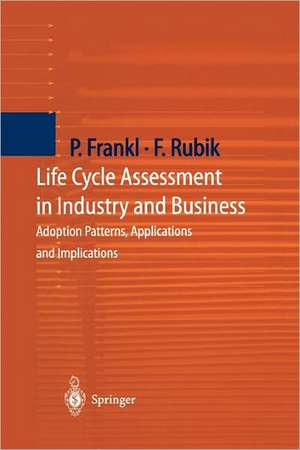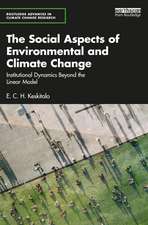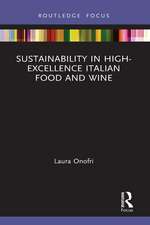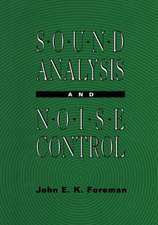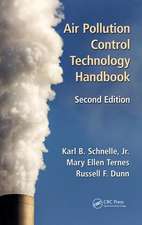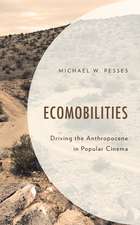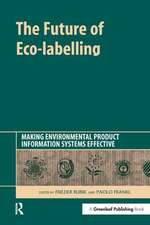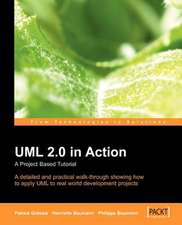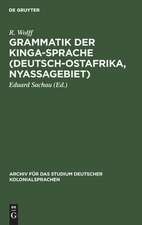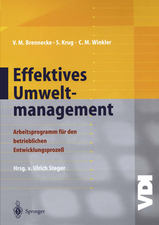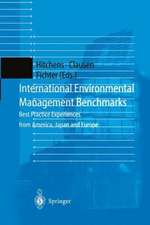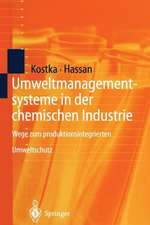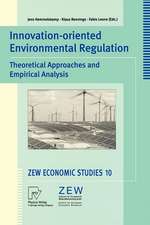Life Cycle Assessment in Industry and Business: Adoption Patterns, Applications and Implications
Autor Paolo Frankl Contribuţii de M. Bartolomeo Autor Frieder Rubik Contribuţii de H. Baumann, T. Beckmann, A.v. Däniken, F. Leone, U. Meier, R. Mirulla, R. Wolffen Limba Engleză Paperback – 3 dec 2010
| Toate formatele și edițiile | Preț | Express |
|---|---|---|
| Paperback (1) | 889.92 lei 6-8 săpt. | |
| Springer Berlin, Heidelberg – 3 dec 2010 | 889.92 lei 6-8 săpt. | |
| Hardback (1) | 643.16 lei 6-8 săpt. | |
| Springer Berlin, Heidelberg – 25 noi 1999 | 643.16 lei 6-8 săpt. |
Preț: 889.92 lei
Preț vechi: 1085.26 lei
-18% Nou
Puncte Express: 1335
Preț estimativ în valută:
170.31€ • 177.15$ • 140.60£
170.31€ • 177.15$ • 140.60£
Carte tipărită la comandă
Livrare economică 12-26 aprilie
Preluare comenzi: 021 569.72.76
Specificații
ISBN-13: 9783642085741
ISBN-10: 3642085741
Pagini: 292
Ilustrații: X, 280 p.
Dimensiuni: 155 x 235 x 15 mm
Greutate: 0.41 kg
Ediția:Softcover reprint of hardcover 1st ed. 2000
Editura: Springer Berlin, Heidelberg
Colecția Springer
Locul publicării:Berlin, Heidelberg, Germany
ISBN-10: 3642085741
Pagini: 292
Ilustrații: X, 280 p.
Dimensiuni: 155 x 235 x 15 mm
Greutate: 0.41 kg
Ediția:Softcover reprint of hardcover 1st ed. 2000
Editura: Springer Berlin, Heidelberg
Colecția Springer
Locul publicării:Berlin, Heidelberg, Germany
Public țintă
Professional/practitionerDescriere
1.1 Life Cycle Assessment (LeA): a fascinating and sophisticated tool The greening of the economy is not a new task, but it is a challenge for which a lot of tasks still have to be done. It is known that the main source of environ mental deterioration by industry is not any more the chimneys and other process related emissions, but the products and services produced. Products are regarded as carriers of polIution: they are not only a potential source of polIution and waste during their use; they are also a cause of resource depletion, energy consumption, and emissions du ring their life starting with the extraction of the raw materials and ending with their disposal (i.e. connecting production and consumption stages). The challenge of these decades is now the greening of products and services. The new focus on products (cp. OosterhuislRubik/ScholI 1996) was introduced as a policy approach of shared responsibility in which different actors are in volved along the life-cycle of a product, each having specific responsibilities.
Cuprins
1 Introduction.- 2 Framework and theoretical background.- 3 Application of LCA in general.- 4 A “static” perspective on LCA applications — Survey results.- 5 The dynamics of LCA adoption and integration in the firm — The results of the case-studies.- 6 The relationship between business and policy: expectations and implications.- 7 Conclusions and recommendations.- References.- Abbreviations.
Textul de pe ultima copertă
The challenge of our time is the greening of products. Different tools and concepts to support this process have been developed in the past decade. Among others, Life Cycle Assessment (LCA) appears as one of the most instructive management instruments for gaining insight into product-related environmental impacts and for supporting an effective integration of environmental aspects in business and economy. Research on LCA was and still is focused on improving the methodology. In fact, the "LCA technique" has significantly improved over the last few years. However, this research progress did nearly not stress the application context of LCA and its embodiment into business and industry. This is precisely the primary focus of the present book. Based on the empirical information of a large survey and of 20 company case studies, the book describes the set of applications and uses, as well as the dynamics of the adoption and integration patterns of LCA within business and industry.
Caracteristici
With 20 case studies from Germany, Italy, Sweden and Switzerland (5 for each country)
